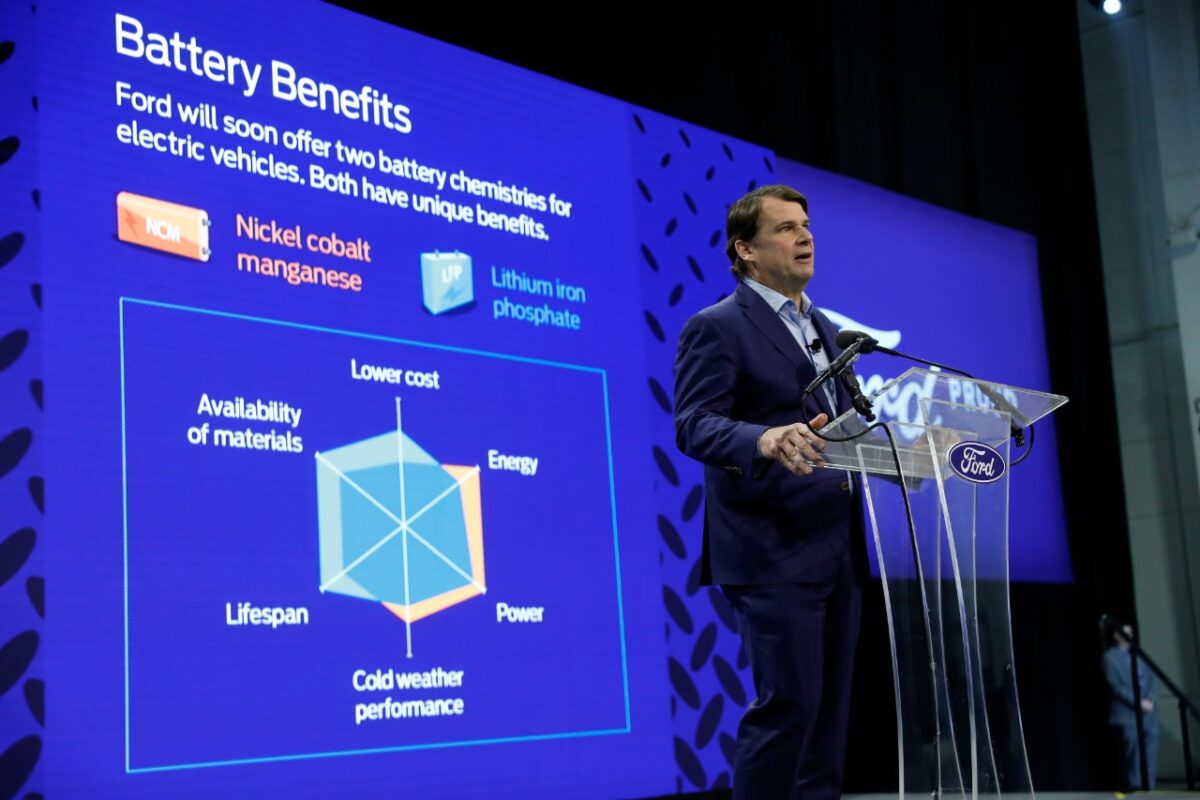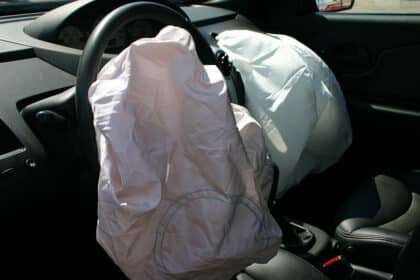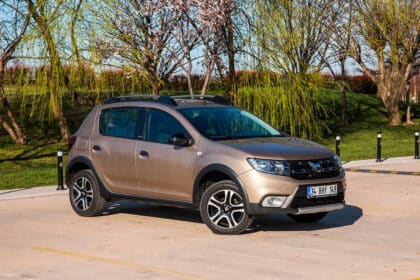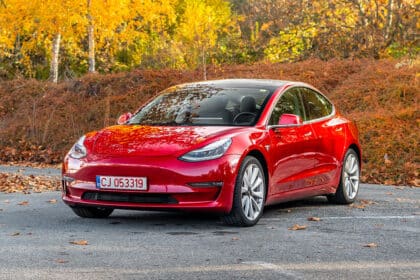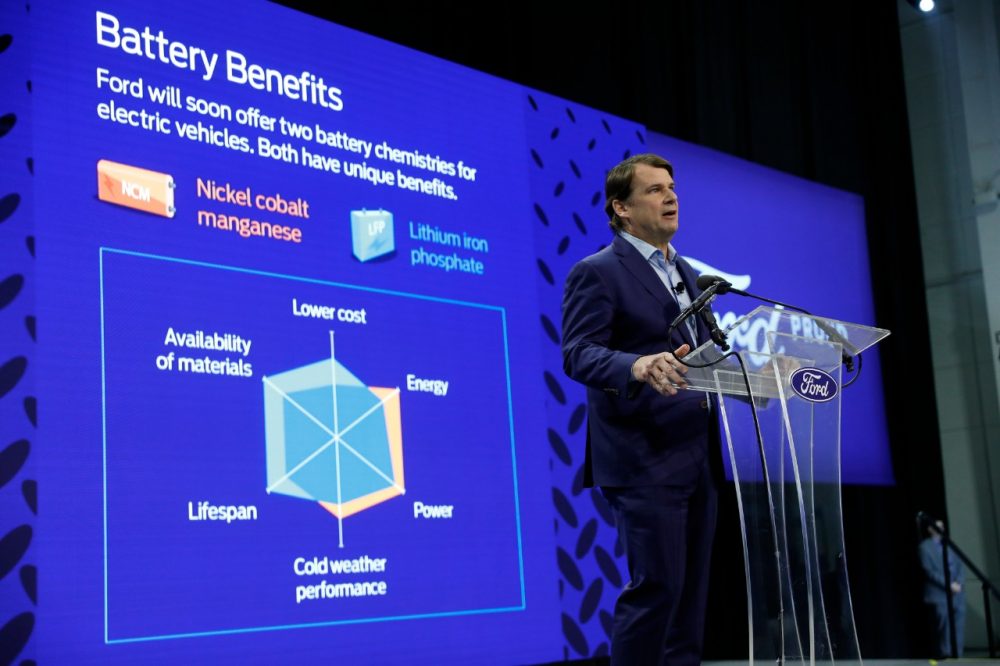 Photo: Ford
Photo: Ford
Ford has announced plans for BlueOval Battery Park Michigan, a new $3.5 billion plant that will specialize in the production of lithium iron phosphate batteries. BlueOval Battery Park Michigan will be the first LFP battery manufacturing plant in the United States with the backing of an automaker.
One of Ford’s Top EVs: The Mustang Mach-E offers sporty appeal, impressive range, incredible tech
The establishment of BlueOval Battery Park Michigan would make Ford the first to offer drivers two battery technology options. Current Ford EVs like the Mustang Mach-E, F-150 Lightning, and E-Transit leverage nickel cobalt manganese battery technology.
Production of LFP batteries is slated to get underway in 2026, and the plant is expected to employ 2,500 people to start. According to Ford, BlueOval Battery Park Michigan will generate 35 gigawatt-hours of battery capacity a year, which would be enough to power 400,000 Ford electric vehicles. By 2026, Ford hopes to achieve an annual run rate of 2 million EVs globally.
However, Ford will begin adding LFP battery options to its vehicles this year, beginning with the Mustang Mach-E later in 2023 and the F-150 Lightning in 2024.
“Ford’s electric vehicle lineup has generated huge demand,” said Ford President and CEO Jim Farley. “We’re delivering on our commitments as we scale LFP and NCM batteries and thousands, and soon millions, of customers will begin to reap the benefits of Ford EVs with cutting-edge, durable battery technologies that are growing more affordable over time.”
The largest advantages of LFP relate to ease and cost of production. Compared to NCM technology, LFP batteries leverage more widely available materials, which helps minimize costs. That will allow Ford to offer more affordable EVs and reduce manufacturing wait times.
Reducing reliance on nickel and cobalt will also help Ford’s aims when it comes to sustainability and equity in its supply chain. LFP batteries also have longer lifespans than their NCM counterparts and don’t have the same issues of degradation when charging over 80% and charging more frequently.
On the other hand, NCM batteries typically provide more power and better performance in cold weather.
Ford’s investment in Marshall, Michigan, follows the establishment of two innovative battery campuses in Kentucky and Tennessee. In 2021, Ford announced a $5.6 billion battery campus in Stanton, Tennesse, called Blue Oval City. Ford is also building twin battery plants in Glendale, Kentucky, as part of its $5.8 billion BlueOvalSK Battery Park.
As part of establishing a presence in Marshall, Ford will place 245 acres of land on the site of BlueOval Battery Park Michigan into a conservation easement. Ford Fund will work with community leaders to determine how to best leverage the land and its natural resources.
Kyle S. Johnson lives in Cincinnati, a city known by many as “the Cincinnati of Southwest Ohio.” He enjoys professional wrestling, Halloween, and also other things. He has been writing for a while, and he plans to continue to write well into the future. See more articles by Kyle.

